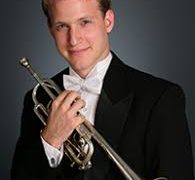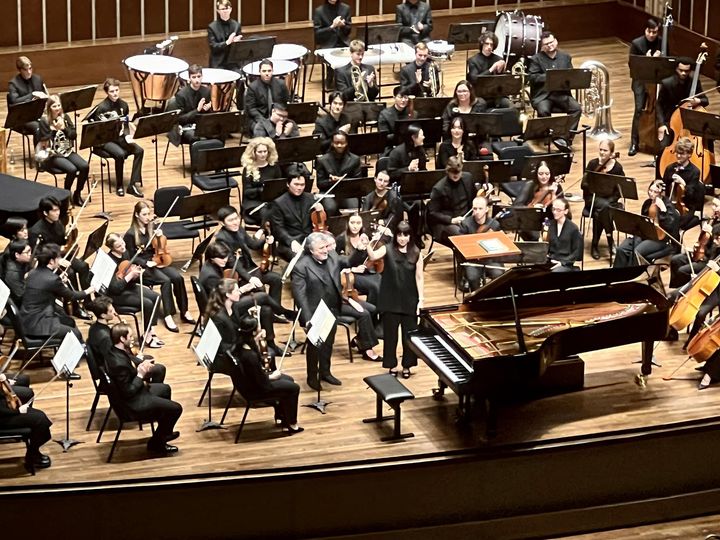A new classical outlet on US radio
mainWende Persons, whom we knew in another century when she worked for DG, has got a new gig running a classical strand on a group on some 40 public radio stations, known as the Station Resource Group.
Wende will be in charge of Classical Music Rising (CMR), an initiative that reaches out to what is perceived as a potential growth audience.
CMR has won a $400,000 Mellon Foundation grant, plus $100,000 from five participating stations, including WQXR (New York) and KUSC (LA).

Go, Wende!





This is all good news for those of us in the US who listen to classical music on the radio.
I am an avid listener and there are 2 PBS stations in my area. However, both must have 100 CDs each that are played constantly. Surely, I jest, but the programming is really dull stuff. I travel a lot in the US and many of the PBS stations around the country are equally unadventurous in their programming.
I have taken to listening to BBC Radio 3 to get an infusion of new music both recorded and live.
Hopefully, Ms. Persons can inject a spark in the moribund PBS programming.
The Classical channel on Sirius XM is my go-to station here in the states. A little more interesting than public radio classical. I agree with Mr. Thompson, public radio classical is a snooze-fest.
As one who worked in classical radio for 20 years, I can say conclusively that public radio-funded research bears the bulk of responsibility for the paring down and homogenization of classical playlists. By the late 1990s, a good number of commercial stations sounded downright avant-garde next to the average classical public radio outlet. If you’d like a taste of this line of thought, take a quick read at http://current.org/files/archive-site/music/music9302modal.shtml
Radio at large desperately needs less focus groups and more programming creativity. Classical radio most of all.
The best by far is KDFC San Francisco – I listen to it all the time here in Mexico!
Unfortunately, I reviewed the Classical Music Rising action plan and was extremely disappointed to find that the chair was Ms. Brenda Barnes of KUSC in Los Angeles. Ms. Barnes was responsible for the gutting and dumbing-down of what was once an extremely high-quality station. From a station that played full-length major works, including major twentieth-century works, the station has been degraded into one that rarely plays full-length works during the day, plays virtually no vocal music, and plays virtually no significant twentieth-century or contemporary music (and I am referring here to composers such as Nielsen Shostakovich, Prokofiev, Hindemith, or Bartok, not necessary to the Second Viennese School or its successors). The programming is dominated by personality-driven, excessively chatty announcers, at least one of whom continually commits the cardinal sin in classical music broadcasting of talking over the music. The station is rigidly bound to an hour-by-hour format, even on the weekends, essentially preventing them from playing Mahler or Bruckner symphonies or even the Beethoven Ninth Symphony. The sole exception is Jim Svejda in the evenings, but even his programming has been restricted, with many modern composers that he is known to favor being avoided (he used to play, for example, Karl Amadeus Hartmann, Edgard Varese, Karol Szymanowski, Leos Janacek, Bohuslav Martinu, and many others, but those composers are rarely if ever heard now). Basically, they play the same ultra-safe stuff over and over again. They refuse to play anything with any degree of dissonance, dynamic contrast, or rhythmic intensity (and this includes, believe it or not, Hector Berlioz’s “Symphonie Fantastique).
The station, like many NPR affiliates, seems to be completely in thrall to “focus groups” and “market research,” which seems to be conducted in Frog’s Nose, Nebraska.
Additionally, when I read the comments about “diversity,” I have to laugh, even though it is not funny. KUSC-FM is a station that essentially plays no works by African-American composers, Latino or Hispanic composers, or Asian composers. Moreover, in a market that has the second largest Jewish population in the United States, they have essentially adopted a policy of refusing to play any works based on or referring to Jewish musical themes or the Jewish experience, whether written by Jewish or non-Jewish composers (for example, the Shostakovich First Violin Concerto and Second Piano Trio, both written employing Jewish themes and, at least partially, as a commemoration of the Holocaust, are not played).
Unless they actually reexamine their programming policies, which seems unlikely, this will be a total waste of time and money.